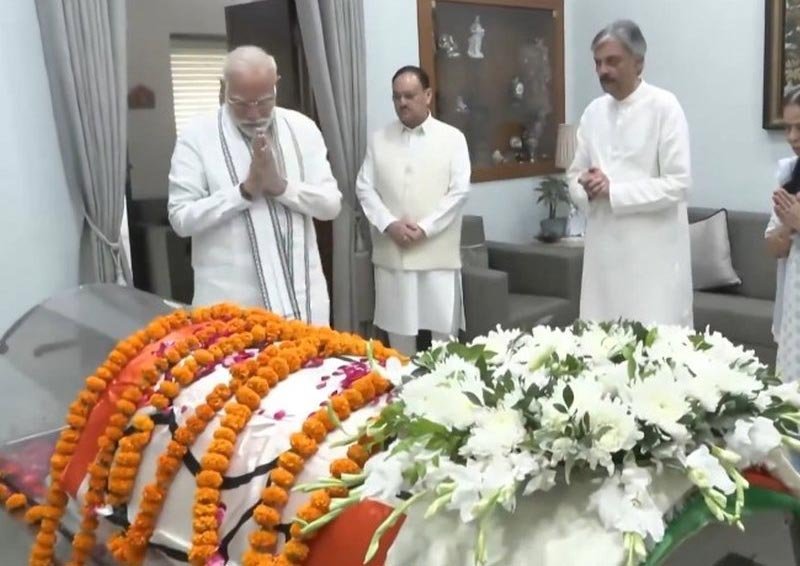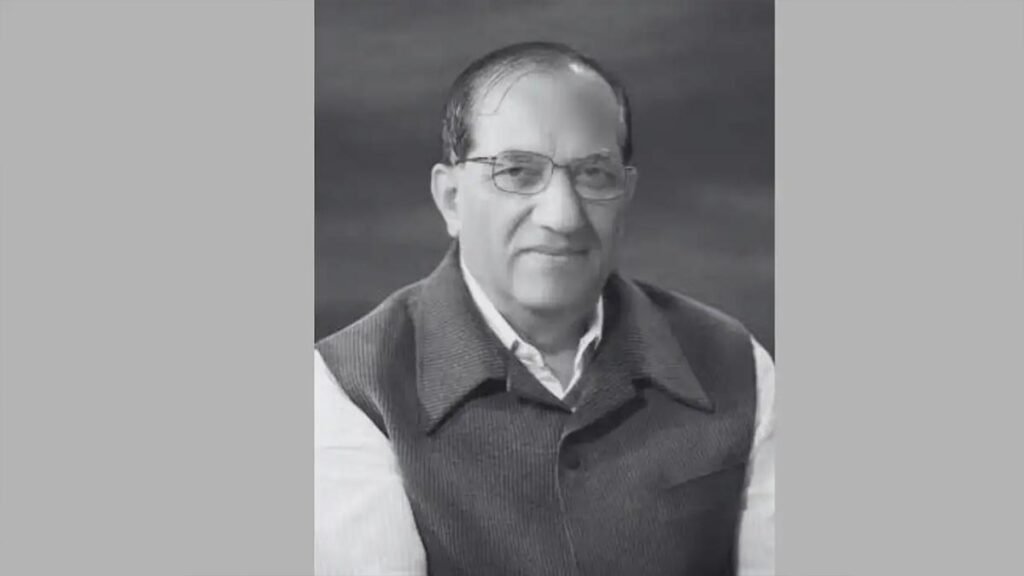Senior BJP stalwart Vijay Kumar Malhotra died on Tuesday morning at All India Institute of Medical Sciences (AIIMS), New Delhi. He was 93 years old, confirmed hospital sources and party officials.
A towering presence in Delhi politics and beyond, Malhotra played central roles across party organisation, legislative duties, and public service over several decades. His passing marks the end of an era for many in the Bharatiya Janata Party and for observers of national politics.
Political Journey and Public Service
Born in Lahore (then British India) in December 1931, Malhotra was part of the generation that witnessed partition and the birth of independent India. He took early leadership roles in the Delhi branch of the Jana Sangh, and later in the BJP, helping to consolidate the party’s base in the national capital.
Over his career, he was elected five times to Parliament and twice as a Member of the Delhi Legislative Assembly. He also twice served as president of the BJP’s Delhi unit and had stints as Leader of Opposition in the Delhi Assembly. One of his most politically resonant victories came in the 1999 Lok Sabha polls, when he defeated then-Congress candidate Manmohan Singh from South Delhi — a result that boosted his national stature.

Outside the electoral arena, Malhotra also contributed to sports administration and held leadership roles in various sports federations.
Response and Legacy
The news of Malhotra’s death elicited widespread condolences. Prime Minister Narendra Modi hailed him as an “outstanding leader” deeply attuned to public concerns and praised his efforts in strengthening the BJP in Delhi. Union Home Minister Amit Shah, BJP President J.P. Nadda, Delhi’s Chief Minister Rekha Gupta, and many others also expressed shock and grief at the loss.
Delhi BJP leaders noted that Malhotra’s role in institutionalising the party’s presence in the capital was vital, calling him a guiding force for several generations of political workers.
His funeral arrangements are being coordinated with party and family protocols; his passing is being mourned not only in political circles but also by citizens who followed Delhi’s political evolution over decades.
In death, as in life, Malhotra’s legacy is bound tightly to the narrative of party-building in the capital and his sustained service in public office. His career will be studied by political historians and party strategists alike, and his absence leaves a gap in institutional memory and experience.
